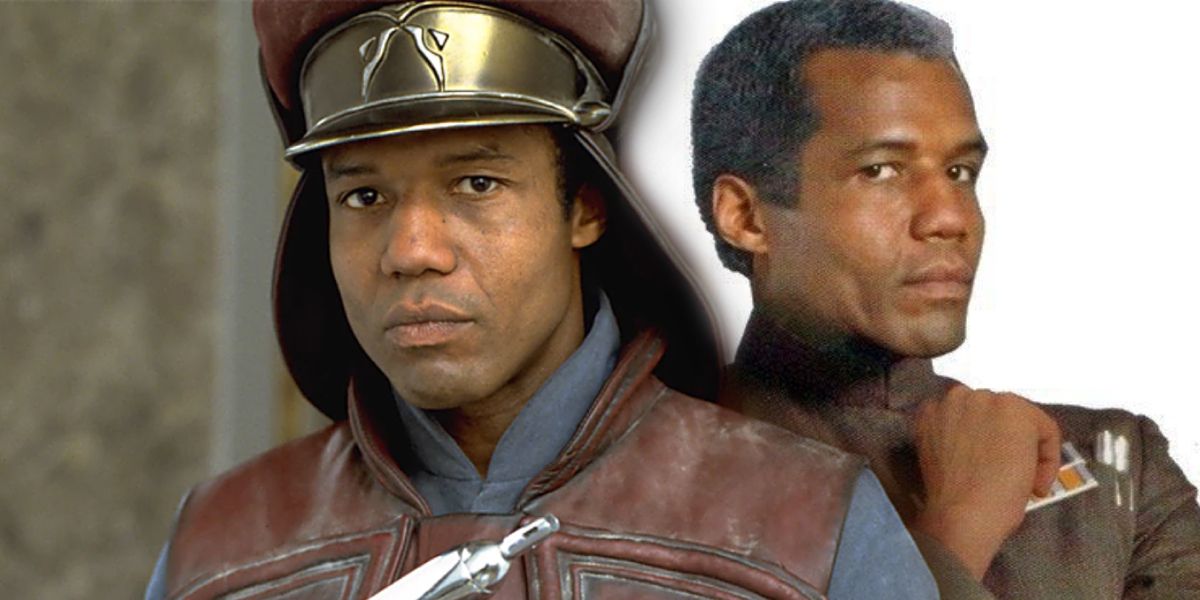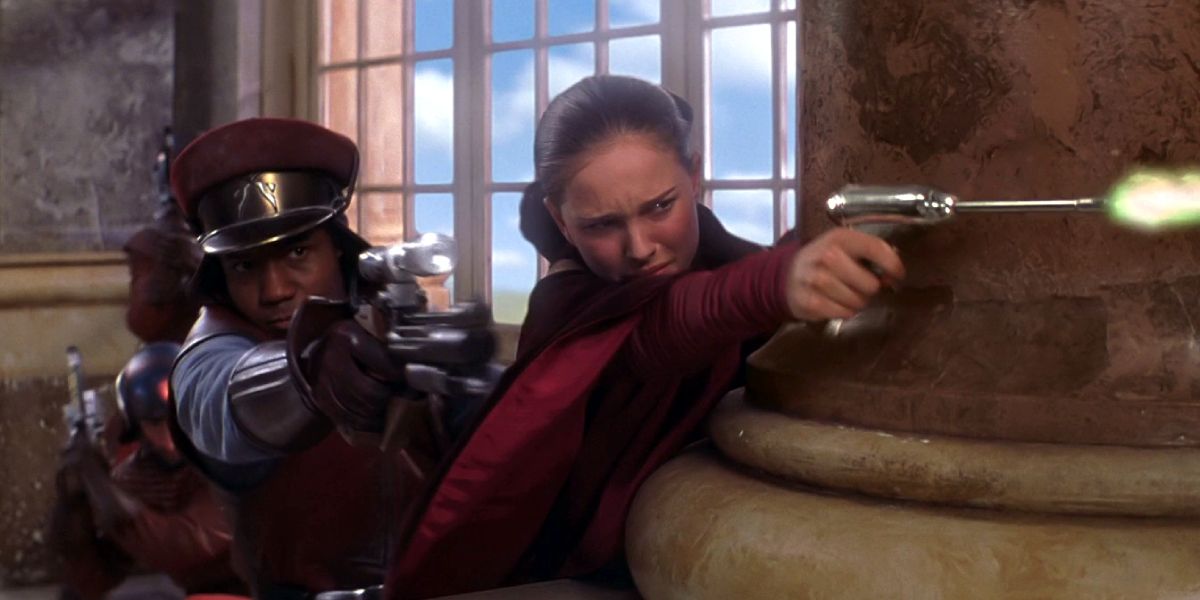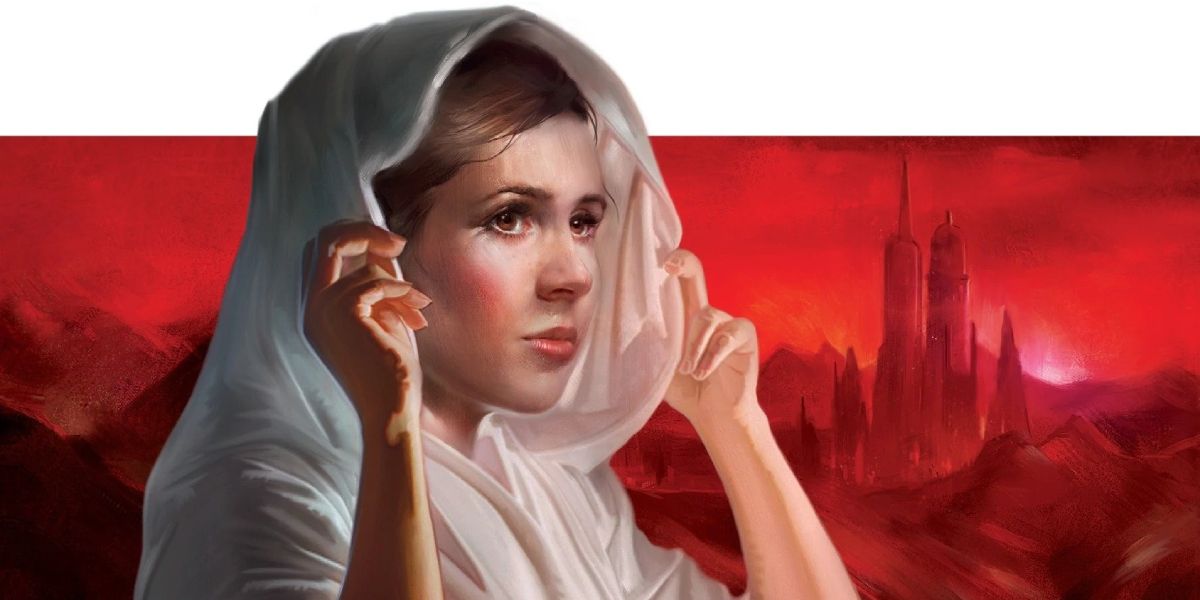Despite playing a key supporting role in 1999's Star Wars:The Phantom Menace, Captain Quarsh Panaka has largely disappeared from the franchise. Canonically, however, Panaka became a moff, or governor, in the Galactic Empire following the Clone Wars. That made him comparable to the likes of The Mandalorian's Moff Gideon and, of course, A New Hope's Grand Moff Tarkin.
In The Phantom Menace, Captain Panaka (played by Hugh Quarshie) was Head of Security for the Royal House of Naboo, serving under Queen Padmé Amidala. Following the Trade Federation's invasion of Naboo, Amidala fled the planet, accompanied by Panaka, Qui-Gon Jinn and Obi-Wan Kenobi, for Tatooine and Coruscant before eventually returning to her home planet. Back on Naboo, Padmé and Panaka led a a successful bid to reclaim Theed Royal Palace from Federation Viceroy Nute Gunray.
Captain Panaka Became an Imperial Moff in Star Wars Legends
Captain Panaka didn't appear in the remainder of the Star Wars prequel trilogy. Quarshie was asked to reprise the role for 2002's Attack of the Clones, but he declined to return when the producers wouldn't allow him to read the entire script. Therefore, Attack of the Clones introduced a new character to lead Padmé's security detail, Gregar Typho, Panaka's nephew. That said, it didn't transpire on-screen, Panaka found himself in a new role following the fall of the Galactic Republic.
Panaka's history as an Imperial moff actually has its origins in Star Wars Legends. While Legends material is no longer canon, it's worth mentioning for a number of reasons. For starters, in Legends continuity, Panaka was indirectly responsible for the rise of the Empire, as he informed Chancellor Palpatine of Padmé's marriage to Anakin Skywalker -- a relationship the secret Sith Lord exploited to turn Anakin to the Dark Side.
Ever loyal to Palpatine, Panaka served the Empire following the Clone Wars, and was eventually made moff of the Chommell sector, which includes Naboo. In Legends, Panaka actually survived the events of the original trilogy, although he was ousted from power following the founding of the New Republic.
How Moff Panaka's Role Became Star Wars Canon Again
Panaka's role as an Imperial moff was officially canonized by author Claudia Gray's 2017 novel Leia, Princess of Alderaan. Gray initially considered making Panaka a member of the Rebellion in the new canon, but ultimately decided to carry over his Imperial history from Legends. Panaka's inclusion was one of Gray's favorite parts of the novel, as it established that the character not only played a role in the life of Padmé, but also in that of her daughter.
As was the case in Legends, the canon version of Panaka remained fiercely loyal to the newly christened Emperor Palpatine -- a fellow Naboo native -- following the abolition of the Republic. For his loyalty, Panaka was once again appointed moff of the Chommell sector. Unlike in Legends, however, Panaka did not live to see the end of the Galactic Civil War.
In Leia, Princess of Alderaan, set three years before the events of A New Hope, there is a sequence in which both Leia Organa and Queen Dalné of Naboo visit Moff Panaka's chalet on Onoam (one of Naboo's moons). Panaka correctly suspects that Princess Leia is actually Padmé's daughter after noticing the striking similarities between the two and questioning Leia about her parentage.
However, before he could report his findings to the Emperor, Panaka was killed when a bomb exploded in his chalet. As Leia soon discovered, the moff was assassinated by the members of the extremist Rebel cell known as the Partisans on the orders of their leader, Saw Gerrera. Panaka's fate goes to show how massive the Star Wars galaxy isl.



